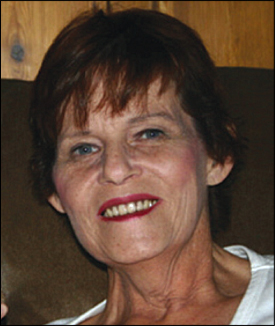
Am Fam Physician. 2008;77(2):140
Helplessly, we watched as our mother struggled for three months to overcome cancer. Days in the hospital were marked by blood draws, sleepless nights, loss of dignity, waiting, and only five precious minutes with her oncologist each day. She'd not been given any information about her illness; only a plan outlining the course of treatment and a consent form to sign for feeding-tube placement. Unbeknownst to us, she never had a chance.
Mom had not seen her internist since her diagnosis, and the anaplastic thyroid cancer had been managed by a variety of specialists. We asked a family physician friend to visit and help clarify some of our questions as her care became increasingly complex. Mom communicated some of her fears about getting worse, despite the months of treatment she had been through. We were shocked when our friend revealed, “This cancer has no cure; the best we can do is give you some time.” Mom had already sensed this and sadly answered, “That's what I've been thinking.”

Our family was torn apart by this information. Several family members remained unconvinced after months of misleading information from her specialists; we were at odds as to how to proceed. Her attending oncologist had reasoned that it was best to shield us from her desperate situation, ultimately leaving us in the dark about her condition. We were crushed and felt robbed of the opportunity to make the best decisions, but there was no time left for recrimination.
When the truth was finally revealed, knowing we were helpless actually empowered our family to focus on her wishes in those final days. The specialist physicians entrusted with our mom's care never knew the anguish we experienced. Patient care must include honesty and communication—no matter how difficult it might be to impart or receive.—j.m., c.m.'s son
COMMENTARY
The words I read in C.M.'s chart—“dismal prognosis,” “very sad case,” “extensive metastases”—frustrated me on her behalf. As a family friend, I was most disturbed about the cumulative physician silence that denied her information and direction over her care. As a family physician, I also felt empathy for her specialists, who awkwardly hid their impotence in providing a cure, but couldn't gather the courage to tell her the truth. We must never relegate the power to heal when confronted with the helplessness to cure; but rather, we must ask if we're more afraid of admitting the truth than our patients are of hearing it.